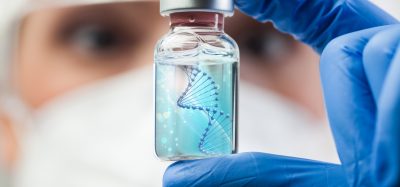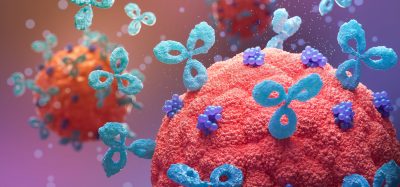Study identifies potential therapy for a common cause of dementia
Posted: 13 July 2018 | Drug Target Review | 1 comment
Early-stage research has uncovered a potential approach to treat one of the commonest causes of dementia and stroke in older people…


Early-stage research has uncovered a potential approach to treat one of the commonest causes of dementia and stroke in older people.
Studies with rats found the treatment reversed changes in blood vessels in the brain associated with the condition, called cerebral small vessel disease.
The team, led by scientists from the MRC Centre for Regenerative Medicine and the UK Dementia Research Institute at the University of Edinburgh, said the treatment also prevents damage to brain cells caused by these blood vessel changes, raising hope that it could offer a therapy for dementia.
Small vessel disease (SVD) is a major cause of dementia and can also worsen the symptoms of Alzheimer’s disease. It is responsible for almost half of all dementia cases in the UK and is a major cause of stroke, accounting for around one in five cases.
Patients with SVD are diagnosed from brain scans, which detect damage to white matter – a key component of the brain’s wiring.
Until now, it was not known how changes in small blood vessels in the brain associated with SVD can cause damage to brain cells.
The researchers found that SVD occurs when cells that line the small blood vessels in the brain become dysfunctional. This causes them to secrete a molecule into the brain.
The molecule stops production of the protective layer that surrounds brain cells – called myelin – which leads to brain damage.
Treating rats with drugs that stop blood vessel cells from becoming dysfunctional reversed the symptoms of SVD and prevented brain damage, tests found.
Further studies will need to test whether the treatment also works when the disease is firmly established, say the scientists. They will also need to check if the treatment can reverse the symptoms of dementia.
Dementia is one of the biggest problems facing society, as people live longer and the population ages. Estimates indicate there are almost 47 million people living with dementia worldwide and the numbers affected are expected to double every 20 years, rising to more than 115 million by 2050.
Professor Anna Williams senior author on the paper from the University of Edinburgh’s MRC Centre for Regenerative Medicine, said: “This important research helps us understand why small vessel disease happens, providing a direct link between small blood vessels and changes in the brain that are linked to dementia. It also shows that these changes may be reversible, which paves the way for potential treatments.”
The research, published in Science Translational Medicine, was funded by the MRC, Alzheimer’s Research UK and Fondation Leducq.
Dr Nathan Richardson, the MRC’s Head of Molecular and Cellular Medicine, commented: “This study is a great example of how innovative discovery science into regenerative mechanisms can be applied to improve our understanding of how vascular changes contribute to dementia. This research in rats opens up new possibilities for developing therapies for cerebral small vessel disease.”
Related topics
Neurosciences, Research & Development, Target Molecule, Therapeutics
Related conditions
Dementia, Small vessel disease (SVD)
Related people
Dr Nathan Richardson, Fondation Leducq, Professor Anna Williams








Great article thanks!!
it would be so helpful to know the name of the drug!!!
dealing with SVD !
Thanks